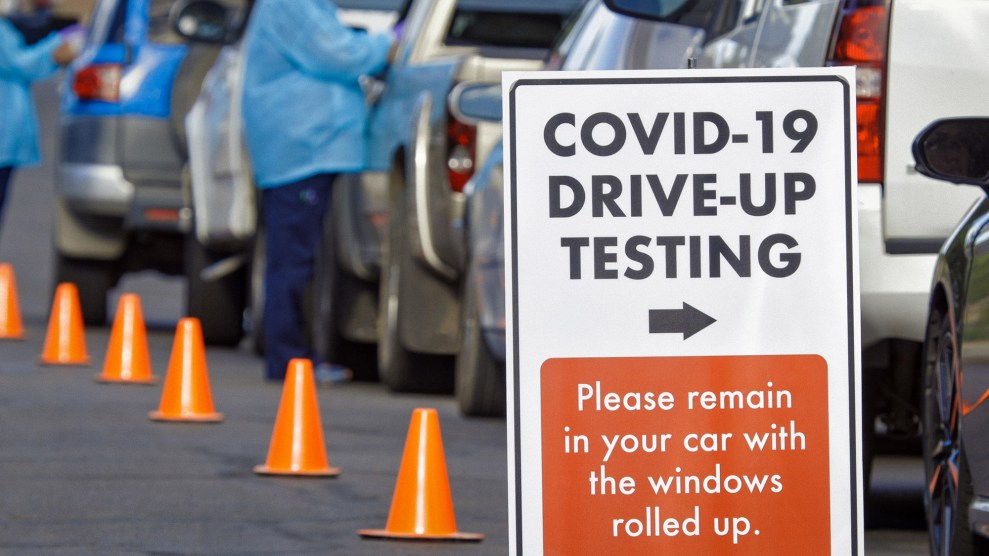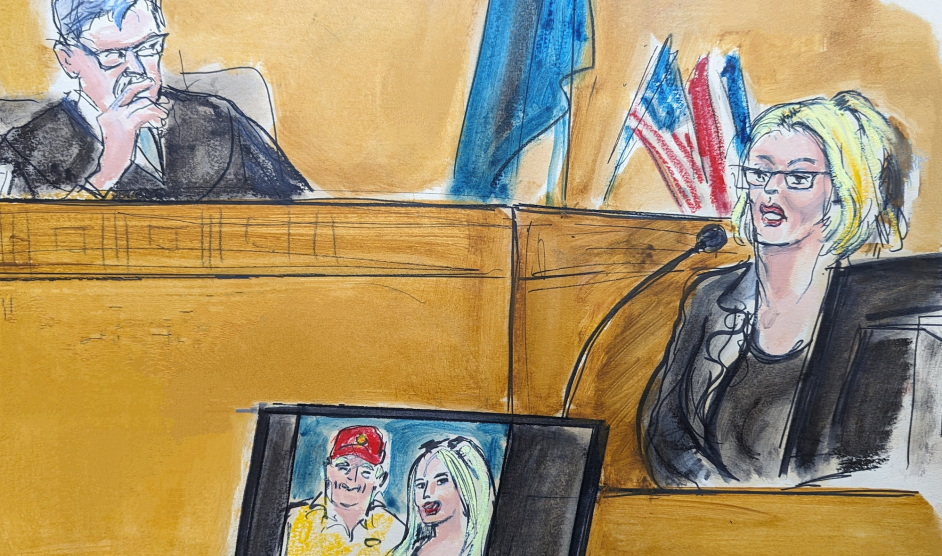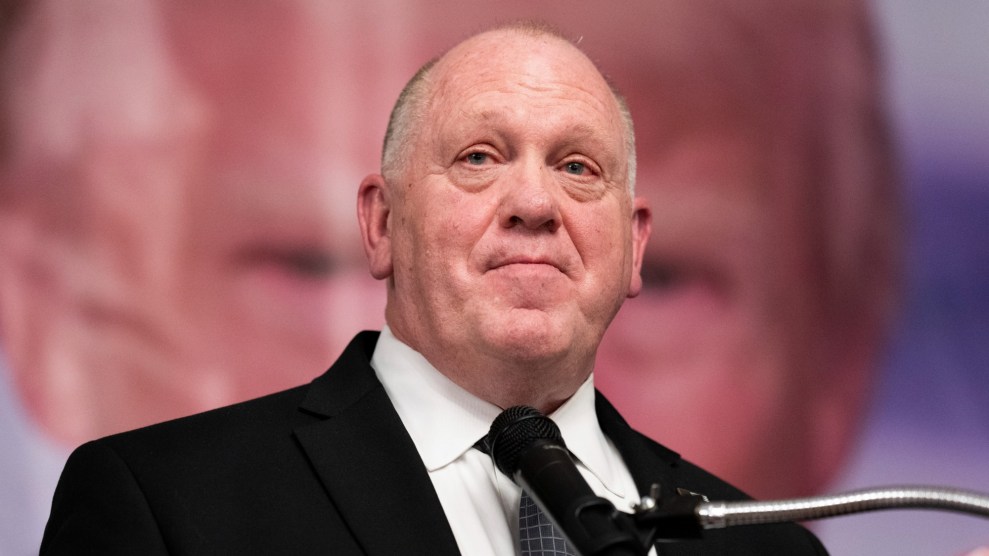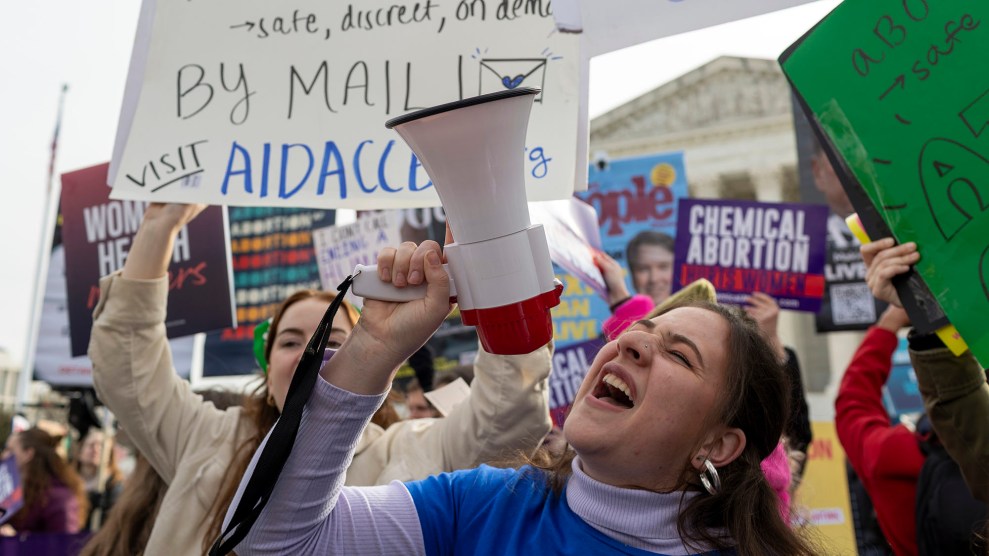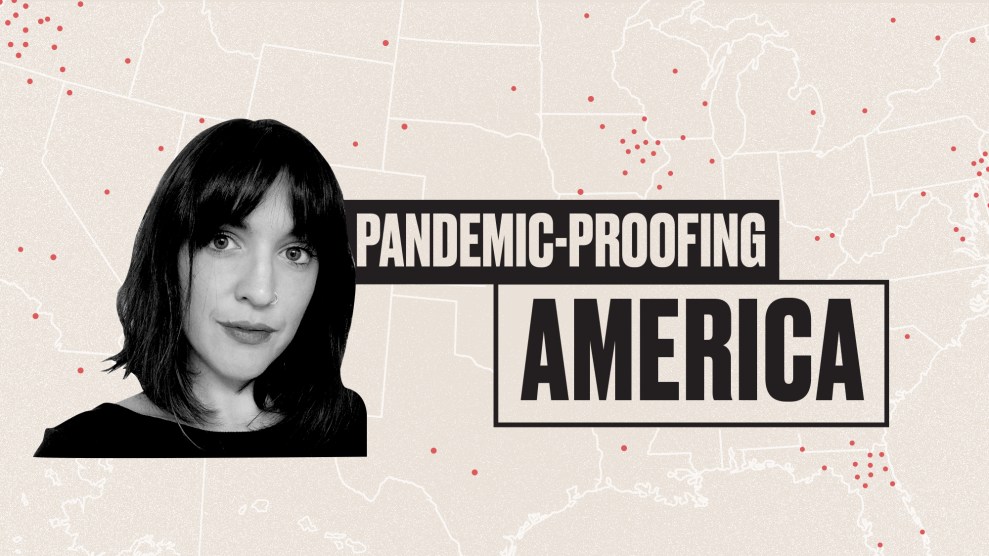
Mother Jones illustration
As the world grapples with the devastation of the coronavirus, one thing is clear: The United States simply wasn’t prepared. Despite repeated warnings from infectious disease experts over the years, we lacked essential beds, equipment, and medication; public health advice was confusing, and our leadership offered no clear direction while sidelining credible health professionals and institutions. Infectious disease experts agree that it’s only a matter of time before the next pandemic hits, and that could be even more deadly. So how do we fix what COVID has shown was broken? In this Mother Jones series, we’re asking experts from a wide range of disciplines one question: What are the most important steps we can take to make sure we’re better prepared next time around?
Before the pandemic, Laurel Bristow was an infectious disease researcher studying respiratory pathogens at Emory University’s Vaccine Center. In March, her lab paused its work because of the pandemic. Within days, Bristow began posting Instagram videos from her cheerful kitchen explaining the science behind the coronavirus headlines. She struck a nerve: Her account quickly grew from a few hundred to 99,000 followers. It’s not hard to see why she’s popular—Bristow deftly unpacks complex scientific concepts. She explains why critics of masks are wrong. She handily dispatches with conspiracy theories. She sheds light on the mysterious vaccine development process. She emphasizes the connection between science and the struggle for racial justice. And she does it all with millennial sass, the occasional silly filter, and cameos from her cat. Through her posts, she’s won her followers’ trust. “We’ve built social media platforms in a way that people trust individuals accounts and are more inclined to listen to what they’re saying—whether it’s right or wrong—than they are to a government agency that feels outdated and inaccessible,” she says. Bristow posts on Instagram at @kinggutterbaby.
On how her account grew: In mid-March, I had a private Instagram account with under 700 followers. It was all just people that I personally knew. My studies at work had gotten halted because of coronavirus, so I just made a post one day and said, “Would anybody be interested in knowing and understanding what’s going on with Coronavirus?” I think like 10 people said, “Yeah, I would love to hear it.” So I made my first ever front-facing video to just explain, what coronavirus is, and why we’re concerned, and why we need to flatten the curve, and what that means. People asked if I could make my profile public so that they could share it. I’m pretty sure my post said something like, Alright, I’m gonna make my profile public for 24 hours. Please don’t be horny about it and don’t send me weird DMs, strangers! I got 500 followers overnight and 2000 followers by the weekend. People just kept sending me stuff asking Can you explain this? Or what does this mean? So I just started making little videos and little stories, explaining the research that was coming out. I’ve never hash-tagged anything. I’ve never asked anyone to share my account. It has just grown from people really wanting information from someone that they feel that they can trust. Now, when I look at the stories that I’ve posted, after they’ve been out for almost a day, 20 or 30,000 people are watching them.
On the disconnect between scientists and the public: It’s been interesting to see how much my Instagram has grown. I think it highlights that there is such a big gap between the content of scientific papers and how they get translated to the public. I suspect a lot of media outlets don’t necessarily have a science writer on staff. So it causes a lot of confusion about what is fact and what is still theoretical. I think people are really desperate to have someone lay things out for them in a way that they can understand, that doesn’t feel condescending, that feels like it’s a factual summary of really complex ideas. They want to know who to trust and how to understand what makes a good research paper, as well as the limitations of specific papers, or even just of what science can accomplish right now.
It’s hard because in the age of the internet, people are so used to getting answers quickly. It’s been a big adjustment to try to understand that things are going to change as we have more information. In the beginning, the CDC told people not to wear masks, because the only thing people were thinking of were hospital grade masks, and we didn’t want to take that away from frontline workers who needed them. No one really considered the benefit of wearing cloth masks. So the recommendations changed. The difference between asymptomatic and pre-symptomatic has also caused a lot of issues with communication. People in the industry sometimes say something that is very clear to other people who are in the industry, but it’s not very clear to the public. At the same time, the public doesn’t understand that because we’re in a pandemic, some things will be reported as preliminary and then updated later. And when it gets updated, people get confused and think that they were lied to at the beginning, when the reality is, everything’s getting updated all the time.
On how she explains the pandemic to the public: I write outlines as if I’m having a conversation with someone. I was always taught that the best way to learn a subject is to see if you can teach it to somebody else. So I imagine I’m teaching a lesson, and I want to make sure that everyone can understand the concepts. I use a lot of analogies to try to convey complex scientific ideas, and people respond to that pretty well because they want it in a context that they are familiar with.
Humility and understanding go a long way. Sometimes I get DMs where people say, “Okay, you said this, I have absolutely no idea what that means.” And I have to go back and explain it. I always remind myself that when people understand science, and they understand the methods, and they understand what research is saying, they feel empowered, not scared. A lot of people right now don’t understand what’s happening, it causes them to have a lot of anxiety and feel a lot of fear about it. And that’s not how we should feel about science. Information should be empowering so that people feel like they can make smart and informed decisions for themselves and their families.
On why her approach works: People like the format that I use. They like to be able to go on social media and see a story—have someone explain something to them and spell it out. I’m not really familiar with the social media accounts of the CDC all the local departments of public health. But judging from what I saw when I worked in San Francisco on tuberculosis control for the Department of Public Health—all of these places could use a little bit of an upgrade on their social media management, because that is where so many people get their news from. If you aren’t reaching people on their level on these social media accounts, other accounts with large followings are going to fill that void. And that’s how a lot of misinformation gets spread. The organizations tasked with understanding and controlling this pandemic are putting out information, but they’re not putting it out in a way that’s accessible to people. So people are going to turn to the Instagram accounts of someone else who’s telling them in the simplest terms, often what they want to hear, which is not always the truth.
On how to make journalists better at reporting on pandemics: In the time of the pandemic, it would be beneficial for large media organizations to have a literature review class, or some kind of workshop for people who are going to cover it. They could learn, for example, what to look for when they’re reading and critiquing research papers. That goes for people who write headlines, too. Those can be a huge source of miscommunication: The article itself will say one thing, and the headline will say something that’s not entirely true, and that causes a lot of anxiety.
On battling misinformation on social media: People will say, “Oh, this person is saying this, can you address this?” And it’s hard for me—I have to resist the temptation to address those specific accounts outright, because it gives the false idea that we are equivalent. I have the vast, vast majority in the scientific community backing up what I’m saying with mountains of research, and these people have cherry-picked a few studies that are not even applicable to COVID or to recent research.
On occasion, I’ve directly referenced posts that I know that people will recognize, even if I’m not tagging the person involved. And I’ve said, “Here’s where all of this is wrong.” Because I do think it’s important to pop in sometimes and say, “Look, here’s the thing that you guys need to look for when someone’s posting stuff like this. That looks too good to be true. Here are a few key things to check in and ask yourself, is this real or is this convenient?”
On the need for science literacy education: I spend a lot of time thinking about this. Society’s perception of science for so many years was glasses and a lab coat in a lab taking care of it. The scientists are figuring it out; the scientists will take care of it. It was a very far removed thing that the public didn’t have to think about or interact with. People were okay with that for a long time. Then, as time progressed, science became more elite. It’s used a lot in advertising now, to get people to buy products without questioning. There are a lot of ads that list complex chemical interactions or claim that something boosts your immune system. But they don’t actually explain it. And the underlying feeling behind that is, don’t worry about it. It’s science. It’s too hard to understand. Just trust us.
So I think years of that combination has caused people to finally say, “Wait, I don’t know what’s happening. And I don’t know why I should trust you without understanding what’s happening.” But they don’t have the tools to understand it for themselves. It’s like a lot of other practical things that should be taught as part of the curriculum, things like how to do your taxes. You should also learn how to evaluate a scientific paper. And luckily, there are some books out there that are doing that, and they’re really fun to read. Honestly, debunking bad science is really enjoyable for me because it’s like a little treasure hunt where you figure out where they went wrong or how they’re manipulating things for their own needs, and then you get to say that you cracked the case.
This interview has been edited for length and clarity.





